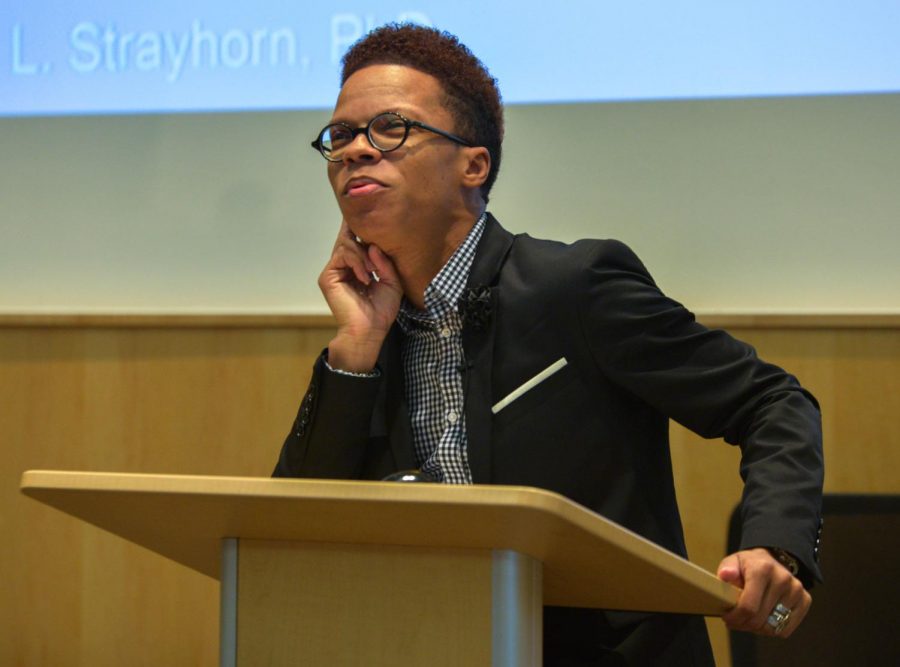Creating a campus culture of belonging
University holds annual forum
Dr. Terrell Strayhorn visited the University of Wisconsin-Whitewater campus to speak to faculty, staff, and students on promoting campus culture and a sense of belonging for the upcoming years.
September 3, 2018
Students on campus got a reminder Aug. 28 that kindness and empathy go a long way in a community.
University of Wisconsin-Whitewater held its annual Fall Forum in Timmerman Auditorium, located in Hyland Hall. The forum’s theme was How a Campus Culture of Belonging Promotes Student Success. Dr. Terrell Strayhorn gave the keynote speech.
“There are several things that students can do,” Strayhorn said. “It’s important that they practice each individually: empathy and understanding and acceptance. It sounds so basic, but it really is important for students to be kind to people, to understand that everyone comes to college from different experiences and walks of life. Some people come with tons of friends, and some come with no friends.”
Sophomore Nick Balk said being a student at UW-W has been a positive experience, and he feels at home here.
“The general feel here is very good. Mostly all of the people are very friendly,” Balk said. “I feel like the faculty makes me feel loved. Most of them are family people, and that family-friendliness shows in their work with students. Many professors are willing to stay and talk after class.”
Students and educators alike play a role in promoting a sense of belonging on campus. Strayhorn said educators should lead more honest conversations to help cultivate student success.
“We are all working for the same goal to work with students so they can attain the success they need for the life they want,” Strayhorn said.
There needs to be more of an effort among universities to reach out to students who need to feel that sense of belonging, he added.
A disconnect can be formed even by small things.
When universities distribute mail to students, some who do not have a permanent mailing address might get lost in the shuffle. The same applies to email list servers. Each student receives a university email address, but not all students have immediate internet access or a device to check their email while off-campus.
Strayhorn said it is easy to forget students have unique circumstances pretend we don’t have these needs, but we do,” Strayhorn said. “No one wants to exist in a place where they feel they do not feel like they belong.”
In an effort to focus on student success, UW-W administrators have collected data, measured changes in degree programs and students’ progression toward earning their degrees.
University faculty also aim to reach out to students of various ethnicities, backgrounds and situations to determine where additional assistance is needed.
Strayhorn offered a few key points to educators: maintain high expectations nurture confidence, affirm abilities, rewrite negative scripts, use “growth” mindsets, create conditions for belonging.
Provost Susan Elrod said she feels confident students and faculty will take Strayhorn’s ideas to heart and promote inclusion on campus. She added that student feedback is always welcome.
“This campus cares about the students. We are going to work even harder to create that culture of belonging,” Elrod said.
Strayhorn is the Founding Chief Executive Officer of Do Good Work Educational Consulting, LLC, Vice President of Academic and Student Affairs at UW-W and Professor of Urban Education at LeMoyne-Owen College in Memphis, Tennessee. He is also known for his #DoGoodWork hashtag on social media and has spent his life promoting diversity and student inclusion on college campuses.













